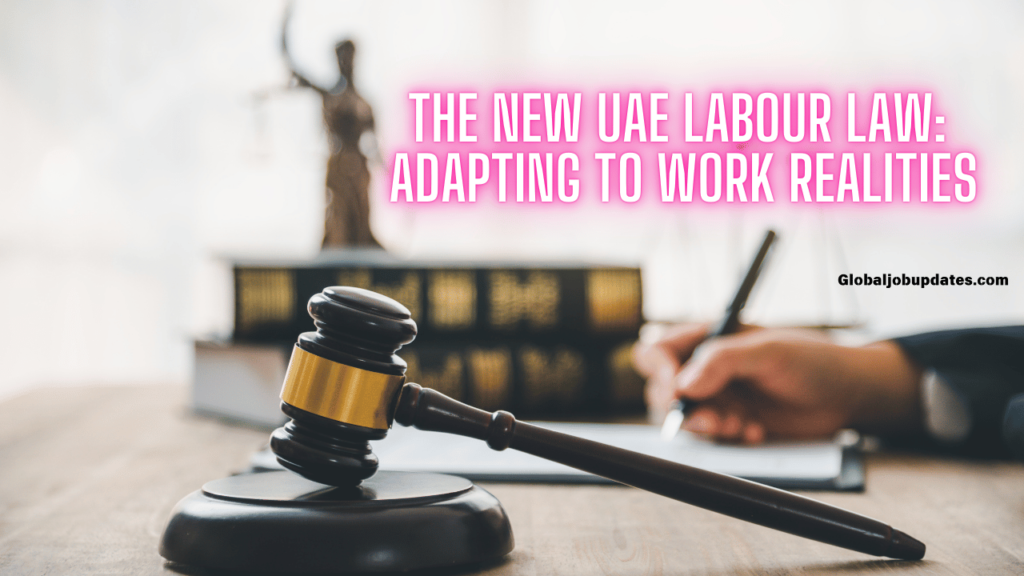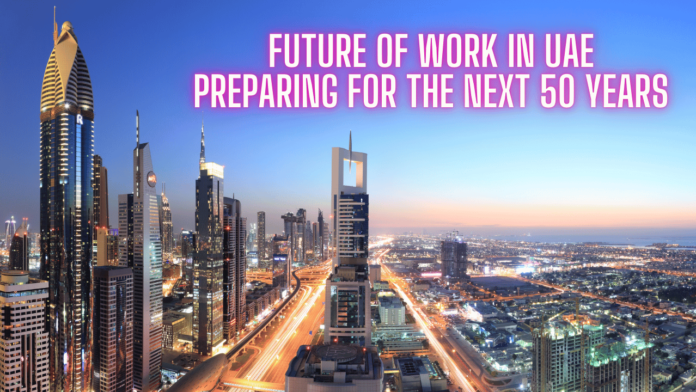The change that has come over the UAE in the last five decades is nothing short of miraculous-from a cluster of mere fishing and pearling villages into an international powerhouse for innovation and commerce. The journey of the UAE has been nothing but remarkable. Therefore, going ahead, it would be relevant to understand how the changing world of work impresses changes upon this dynamic country, and how people and organizations can best prepare for forthcoming changes.
UAE 50 Years Ago: A Brief Look Back
When trying to comprehend the scale of change in the UAE, we must turn our eye towards its beginning. By land area, it stood in a very different environment than it does today fifty years ago when it was looked upon:
- Its economy was set upon fishing, pearling, and basic trade.
- Infrastructure was highly limited, with few paved roads or modern buildings.
- The education and healthcare systems were still in their infancy.
- The discovery of oil had just about begun to reshape the economic landscape of the country.
Background
Thus, the background stands in testimony to the progress that the UAE has achieved in relatively short years. It also contextualizes the rather ambitious vision of the nation for the times to come.
The New UAE Labour Law: Adapting to Work Realities

In 2024, the UAE promulgated a new labour law which expressed the now changed nature of work globally and nationally. Some of the important features of this new labour law are the following:
- Flexible working arrangement-part-time and temporary work amongst others
- Equal remuneration for equal work – gender not being an issue
- More protection to workers’ rights
- Provisions relating to Remote Work and participation in the gig Economy
These changes underline the UAE’s pursuit of a modern, flexible, and fair employment space-one that will be able to meet the elasticity of future challenges and opportunities with poise.
The Future of Work in the UAE: Key Trends and Predictions
The future of work in the UAE is shaped by a few key trends that look ahead:
- Digitalization and automation: During this decade, the rapid rise of artificial intelligence, robotics, and other very advanced technologies has been going on and will continue. Major industries shall change with the creation of new and deletion of other jobs.
- Green economy: The UAE’s thrust for sustainable development and renewable energy opens up new jobs in solar power, green building, and environmental conservation.
- Knowledge-based economy: Innovation, research, and development come more into focus, especially in areas such as biotechnology, space, and FinTech.
- Remote and hybrid work models: COVID-19 accelerated the shift to adopt flexible work arrangements in the UAE, probably to stay for times to come.
- Gig Economy Growth: Fast-growing gig economy allows operations to be flexible both for workers and businesses.
- Lifelong learning culture: Rapidly changing technologies would make it compulsory for workforce to upskill and reskill throughout their careers.
Future Jobs in UAE
As new technologies get integrated into the contours of our daily lives, job roles are coming into being whereas old jobs are getting redesigned. Here below included are some of the jobs which are in great demand in the future across UAE:
- Artificial Intelligence and Machine Learning Experts
- Data Scientists and Analysts
- Renewable Energy Engineers
- Digital Transformation Consultants
- Telemedicine Experts
- Space Scientists and Engineers
- Blockchain Developers
- Sustainability Managers
- UAV operators and technicians
- Cybersecurity specialists
Dubai and the UAE: Projects and Vision into the Future
The UAE government has come up with some ambitious plans toward the future, including:
- UAE Centennial 2071: A long-running vision of making the UAE the best country in the world on its 100th anniversary.
- Dubai Plan 2040: An urban development plan that envisions Dubai to be the world’s best place to live.
- Abu Dhabi Economic Vision 2030: This is for diversifying the Abu Dhabi economy so it can have minimal reliance on oil.
- UAE Energy Strategy 2050: It aims at increasing the contribution of clean energy in the overall energy mix to about 50% by 2050.
- Mars 2117 Project: This is a long-term venture aimed at establishing the first human colony on Mars by 2117.
All these various kinds of long-sighted projects really drives home the fact that the UAE is forging into innovation, sustainability and world leadership.
Future of Healthcare in UAE

Healthcare is one of the most vital industries that are witnessing a sea change in a big way. Some of the arriving changes are:
- Telehealth and telemedicine
- Practicing of personalized medicines based on genetic profiling.
- Diagnosis and treatment using AI and robotics
- Gaining much significance to preventive healthcare and wellness
Preparing for Future World of Work – UAE
For addressing the upcoming challenges in the working world of UAE, some of the following key steps must be considered at the individual as well as organizational levels:
- Engage in lifelong learning; stay fresh and current to be relevant in a constantly changing job market.
- Develop digital literacy; whatever the vocation may be, most of the skills in the future are going to be needed with a perspective of digital skills.
- Develop soft skills because, while automation might replace routine tasks, distinctly human skills like creativity, emotional intelligence, and complex problem-solving will remain highly sought after.
- Knowledgeable: Stay updated about the latest emerging trends and technologies related to your industry and, in general, to the economy.
- Flexible: Entrain the mindset in terms of change; change course, if necessary.
- Global Networking: Networks within and outside the UAE can be built acquiring the status of the country as a global hub.
Conclusion: What Awaits the Future for UAE?
The future of work in the UAE will indeed be brilliant, diversified, and full of opportunities. Yes, challenges like continuous adaptation to disruption of industries would stay abreast, but overall, it looks pretty great. Proactive approaches toward change, investment in projects with a visionary future, and a knowledge-based economy give the UAE an edge over others that extends well into the decades ahead.
The coming five decades will definitely continue to see UAE grow and change, and sometimes even amaze the world with ambitious strides and achievements. Given the ever-changing work landscape in UAE, there is much which can be offered to one who would learn, adapt, and move toward the future.
The future of work in the UAE is driven by technology, flexibility, and a strong focus on skill development. As businesses evolve, job seekers will need to adapt and embrace lifelong learning to stay competitive. The UAE’s commitment to innovation creates exciting opportunities for all. Stay informed and ready to seize these opportunities as they arise. Embrace the changes, and be part of the thriving job market in the UAE.

